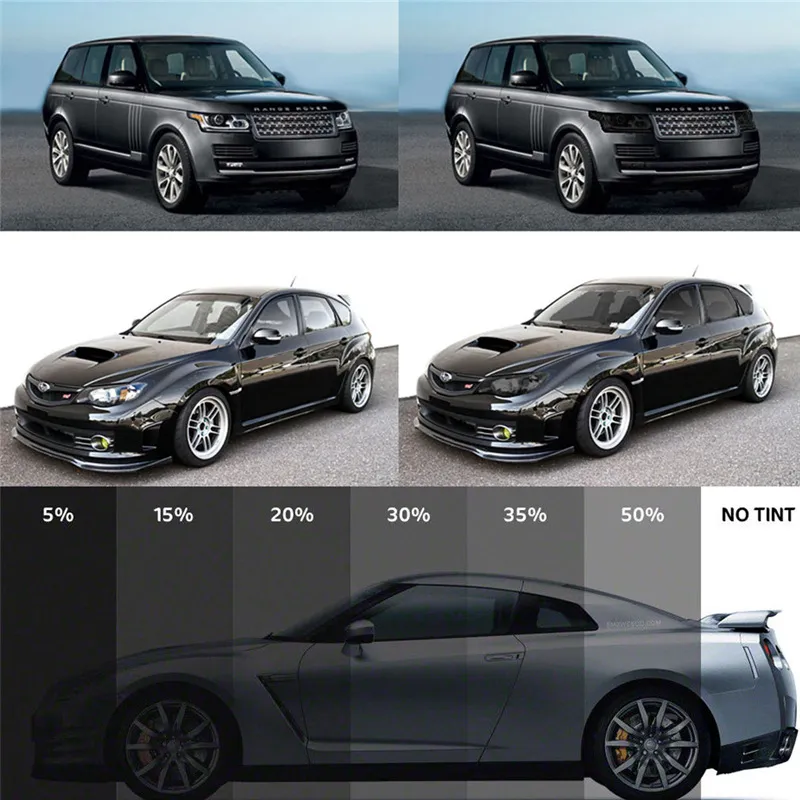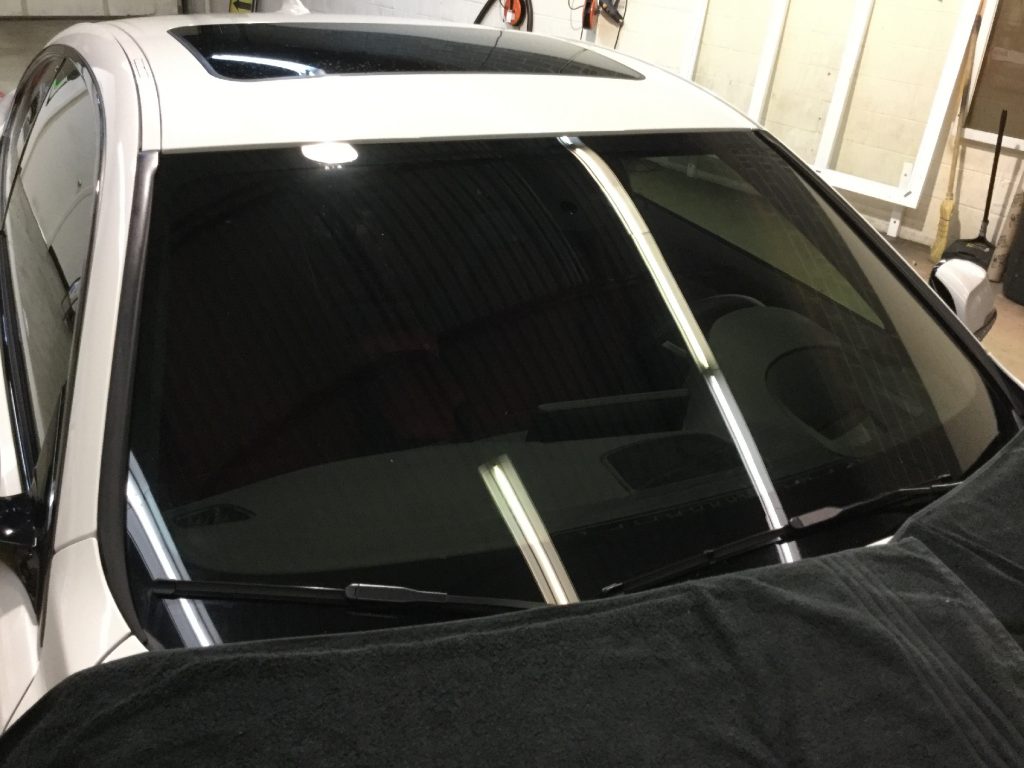Window Tinting for Homes: Improve Energy Efficiency and Privacy with Style
Window Tinting for Homes: Improve Energy Efficiency and Privacy with Style
Blog Article
Home Window Tinting Regulations: What You Required to Know Before Tinting Your Car
Comprehending window tinting legislations is important for any type of car owner taking into consideration tinting their vehicle. Regulations differ substantially from state to state, establishing details limits for Visible Light Transmission (VLT) percentages, particularly for front-side windows and windshields. Failing to follow these laws can cause fines, the requirement to get rid of the color, and difficulties with insurance policy. As you contemplate enhancing your vehicle's appearance and functionality, it is vital to realize not just the legal ramifications but additionally the functional considerations that come with picking the best color. What variables should you focus on in your decision-making procedure?
Value of Recognizing Tint Laws
Recognizing window tinting regulations is essential for automobile proprietors to make certain compliance with state regulations. These regulations dictate the acceptable degrees of color darkness and reflectivity, which can dramatically differ from one territory to another. Failing to abide by these policies can cause penalties, compulsory elimination of the color, and possible difficulties during lorry inspections.
Moreover, understanding these regulations helps car proprietors make notified choices regarding their tinting alternatives. Various kinds of window movies supply different benefits, such as UV protection, warm being rejected, and glow decrease. Nonetheless, without understanding of the lawful limitations, car owners run the risk of selecting items that might inevitably bring about lawful issues.
Additionally, awareness of tinting regulations promotes a much safer driving atmosphere. window tinting. Excessively dark tints can impair exposure, increasing the threat of accidents, especially at night or in adverse weather. Police additionally utilize these policies to make sure road safety, making compliance not just a personal obligation yet a lawful responsibility
State-Specific Tint Rules
Each state in the united state has established its very own certain laws concerning home window tinting, mirroring a diverse range of demands and standards. These guidelines can vary substantially, impacting how vehicle owners come close to installation and conformity. For example, some states permit darker tints on rear windows while imposing stringent limits on front-side home windows.
Furthermore, laws frequently define allowed color products and colors. Certain states ban reflective colors completely, while others might allow them to a restricted degree. Additionally, some jurisdictions mandate that automobiles with tinted home windows present a sticker label showing compliance with state regulations, providing a clear identification for police.
Enforcement of these laws also varies; some states are more positive, carrying out arbitrary checks, while others depend on complaints or visible infractions to start enforcement. Car owners need to know that failing to abide by state-specific color policies can result in fines, necessary elimination of prohibited colors, or both.

Legal Tint Percentages
Determining the lawful color percents is important for lorry owners looking for to abide by state policies. Each state has particular laws regulating exactly how much light must travel through the windows of a lorry, which is expressed as a percent referred to as Noticeable Light Transmission (VLT) This percentage varies substantially across states and can depend on the type of home window-- front side, back side, and windshield.
For instance, some states enable as low as 20% VLT on front side home windows, while others might allow up to 50%. Windscreen tinting is frequently a lot more restricted, with several territories allowing only a slim band of tint at the top of the windshield. In contrast, back home windows typically have much more tolerant regulations, with some states permitting darker tints.
It is crucial for vehicle proprietors to familiarize themselves with their regional legislations to prevent potential lawful issues. This includes understanding just how VLT is measured, as it can differ based on the kind of home window film utilized. Staying informed regarding these policies makes sure compliance and promotes safe driving problems for both the car owner and others on the roadway.
Effects of Non-Compliance
Stopping working find more info to stick to home window tinting laws can cause substantial effects for automobile proprietors. The most immediate consequence is the potential for website traffic stops and citations from police. Police officers educated to identify prohibited tint levels might release fines, which can vary by jurisdiction but frequently vary from moderate to substantial amounts. Repetitive infractions may cause boosted charges, consisting of greater penalties or extra factors on a chauffeur's license.

Insurer may also penalize for non-compliance, as unlawful adjustments can be seen as a violation of plan terms. This can influence protection rates or result in issues in claims if an incident occurs.
Ultimately, the consequences of non-compliance extend past instant punitive damages; they can impact a chauffeur's insurance coverage prices, legal standing, and general car worth, stressing the significance of adhering Going Here to local home window tinting guidelines.
Tips for Deciding On Tinting Options
Understanding the ramifications of non-compliance highlights the importance of making informed options when picking window tinting alternatives. Acquaint yourself with your state's certain regulations pertaining to color darkness and reflectivity. Each state has special policies that dictate the allowable restrictions, so ensure you remain within these guidelines to prevent penalties.
Second of all, take into consideration the kind of tint material. Options include colored, metalized, and ceramic colors, each offering varying degrees of warmth denial, UV defense, and resilience. For example, ceramic colors offer remarkable warm resistance without interfering with digital tools, making them a preferred option.
In addition, analyze your key purpose for tinting. If you seek improved privacy, choose darker tints; nonetheless, remember that this may impact visibility in the evening. Alternatively, if glare decrease and UV defense are your major problems, lighter tints might be enough.
Last but not least, speak with a professional installer that is knowledgeable regarding regional policies and can advise top notch his comment is here materials fit to your demands (window tinting). Taking these aspects into account will certainly guarantee you make a well-informed choice, inevitably boosting both your vehicle's visual appeals and functionality
Final Thought
To conclude, knowledge with home window tinting regulations is vital prior to using tint to a vehicle. Each state implements details regulations relating to visible light transmission percents, specifically for front-side home windows and windscreens. Non-compliance can result in considerable charges, including penalties and obligatory removal of non-conforming tint. By understanding legal requirements and selecting suitable tint products, lorry proprietors can accomplish visual enhancement while continuing to be compliant with pertinent laws. Adherence to these guidelines makes certain both safety and security and satisfaction.
Comprehending window tinting laws is important for any kind of automobile owner considering tinting their automobile.Recognizing home window tinting regulations is critical for automobile owners to guarantee conformity with state guidelines. Some states enable darker tints on back home windows while enforcing strict limitations on front-side windows.
In contrast, rear windows commonly have a lot more lenient policies, with some states allowing darker tints. (window tinting)
In final thought, knowledge with window tinting legislations is essential prior to applying color to a car.
Report this page